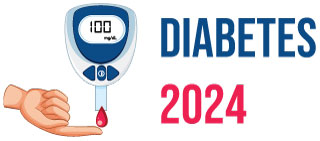Islet Biology/Insulin Secretion
Islet biology and insulin secretion are central to understanding the pathophysiology of diabetes and developing targeted therapeutic interventions. Islets of Langerhans, clusters of endocrine cells within the pancreas, play a crucial role in glucose homeostasis by secreting hormones such as insulin and glucagon. Beta cells, the predominant cell type within the islets, are responsible for insulin secretion in response to elevated blood glucose levels.
The intricate biology of islets involves complex cellular interactions and signaling pathways that regulate insulin secretion. Glucose sensing by beta cells triggers a series of events, including depolarization of the cell membrane, influx of calcium ions, and exocytosis of insulin-containing vesicles. Disruptions in these processes can lead to impaired insulin secretion and contribute to the development of diabetes.
Understanding the nuances of islet biology and insulin secretion holds promise for developing novel therapies for diabetes, including beta cell replacement strategies and pharmacological agents that enhance insulin secretion or protect beta cell function. The Islet Biology/Insulin Secretion session at the Diabetes 2024 summit will delve into these topics, showcasing the latest research and innovations in this field.
Keywords: islet biology, insulin secretion, beta cells, glucose homeostasis, cellular interactions, signaling pathways, beta cell function, genetic variants, environmental factors, therapeutic interventions, single-cell analysis.
Related Sessions
Tags
- Diabetes 2024 Conference
- Diabetes 2024 Events
- Diabetes Meetings
- Diabetes Hybrid Event 2024
- Diabetes Event in Las Vegas
- Diabetes Event in USA
- Diabetes Event in Las Vegas 2024
- Diabetes Summit
- Diabetes Summit 2024
- Diabetes Webinar
- Diabetes Webinar 2024
- Upcoming Diabetes Event
- Endocrinology Conferences
- Endocrinology Conferences 2024
- Endocrinology Events
- Endocrinology Events 2024
- Endocrinology Meetings
- Endocrinology Hybrid Event 2024
- Endocrinology Event in USA
- Endocrinology Event in Las Vegas
- Endocrinology Event in Las Vegas 2024
- Endocrinology Summit
- Endocrinology Summit 2024
- Endocrinology Webinar
- Endocrinology Webinar 2024
- Upcoming Endocrinology Event
